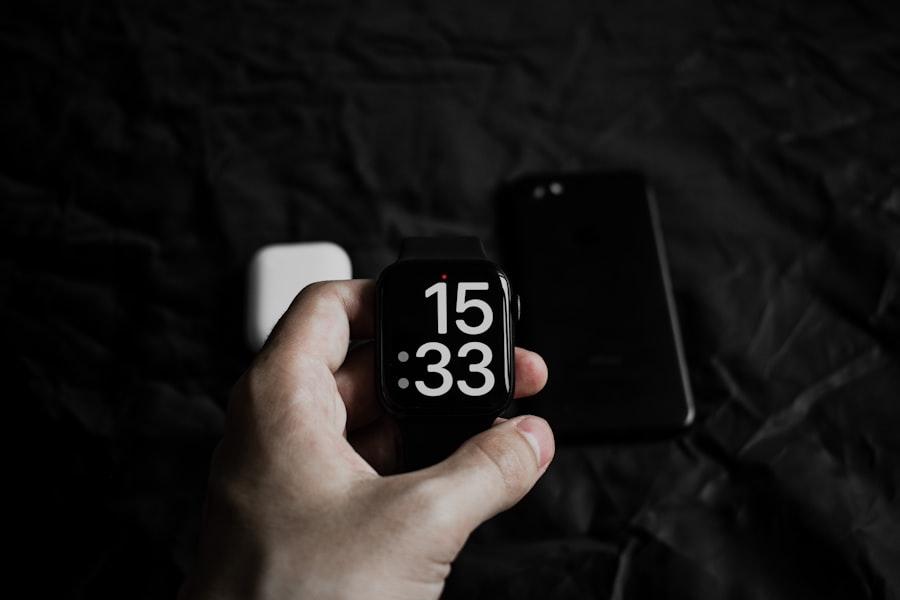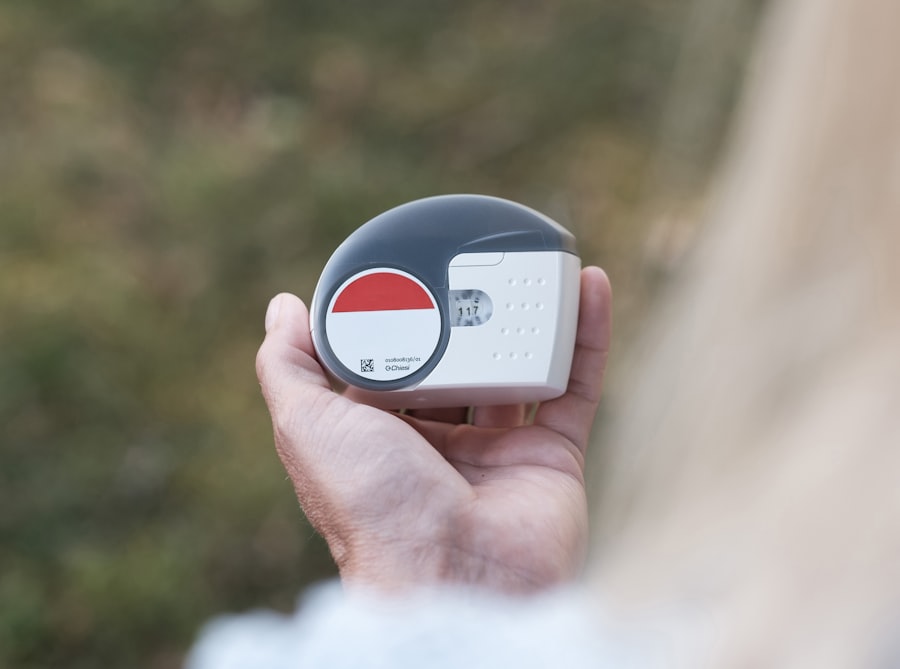Cognitive performance encompasses a range of mental processes that include attention, memory, problem-solving, and decision-making.
In today’s fast-paced world, where information is abundant and distractions are numerous, understanding and enhancing your cognitive performance has never been more crucial.
You may find yourself juggling multiple tasks, striving to meet deadlines, or simply trying to keep up with the demands of daily life. As such, the quest for improved cognitive function is not just a personal endeavor; it is a necessity for success in both personal and professional realms. The significance of cognitive performance extends beyond mere academic achievement or workplace efficiency.
It influences your emotional well-being, social interactions, and overall quality of life. When you are able to think clearly and process information effectively, you are better equipped to make informed decisions, manage stress, and engage meaningfully with others. This article will explore the concept of self-monitoring as a powerful tool for enhancing cognitive performance, providing you with insights and strategies to optimize your mental capabilities.
Key Takeaways
- Self-monitoring is crucial for enhancing cognitive performance
- Various tools are available for self-monitoring cognitive performance
- Using self-monitoring tools can lead to improved cognitive performance
- It is important to incorporate self-monitoring into daily routine for cognitive enhancement
- Self-reflection plays a key role in cognitive enhancement
The Importance of Self-Monitoring in Cognitive Performance
Self-monitoring is the practice of observing and regulating your own cognitive processes. It involves being aware of your thoughts, emotions, and behaviors as they relate to your cognitive performance. By engaging in self-monitoring, you can identify patterns in your thinking and behavior that either support or hinder your cognitive abilities.
This awareness is essential for making informed adjustments that can lead to improved performance over time. You may find that by simply paying attention to how you approach tasks or manage distractions, you can unlock new levels of efficiency and effectiveness. Moreover, self-monitoring fosters a sense of accountability.
When you take the time to reflect on your cognitive processes, you become more responsible for your own learning and growth. This proactive approach encourages you to set specific goals and track your progress, ultimately leading to greater motivation and commitment. As you become more attuned to your cognitive strengths and weaknesses, you can tailor your strategies to enhance your performance in areas that matter most to you.
Types of Self-Monitoring Tools for Cognitive Enhancement

There are various self-monitoring tools available that can help you enhance your cognitive performance. These tools range from simple journaling techniques to sophisticated digital applications designed to track cognitive metrics. One effective method is maintaining a cognitive journal where you record your daily thoughts, feelings, and experiences related to specific tasks or challenges.
This practice not only helps you identify patterns but also serves as a reflective space for processing your experiences. In addition to journaling, technology has introduced a plethora of apps and software designed for cognitive enhancement.
For instance, some applications allow you to set timers for focused work sessions while tracking your productivity levels throughout the day. By utilizing these tools, you can gain valuable insights into how different factors influence your cognitive performance, enabling you to make data-driven decisions about your work habits.
Benefits of Using Self-Monitoring Tools for Cognitive Performance
| Benefits of Using Self-Monitoring Tools for Cognitive Performance |
|---|
| 1. Improved awareness of cognitive strengths and weaknesses |
| 2. Enhanced ability to track progress over time |
| 3. Better understanding of factors influencing cognitive performance |
| 4. Increased motivation to engage in cognitive training and activities |
| 5. Facilitated identification of effective cognitive strategies |
The benefits of employing self-monitoring tools for cognitive performance are manifold. First and foremost, these tools provide you with concrete data about your cognitive habits and performance levels. By analyzing this data, you can identify trends that may not be immediately apparent through casual observation alone.
For example, you might discover that your focus wanes significantly after a certain period of time or that specific environments enhance or detract from your productivity. Additionally, self-monitoring tools can enhance your motivation by providing tangible evidence of progress. When you set goals and track your achievements over time, you create a sense of accomplishment that fuels further efforts.
This positive reinforcement can be particularly powerful in maintaining momentum as you strive for cognitive enhancement. Furthermore, the act of monitoring itself encourages a growth mindset; as you recognize areas for improvement, you become more open to learning and adapting your strategies.
How to Incorporate Self-Monitoring Tools into Daily Routine
Incorporating self-monitoring tools into your daily routine requires intentionality and consistency. Start by selecting one or two tools that resonate with you—whether it’s a journaling practice or a digital app—and commit to using them regularly. Establish specific times during the day when you will engage in self-monitoring activities.
For instance, you might choose to reflect on your cognitive performance at the end of each workday or dedicate a few minutes each morning to plan your tasks. As you integrate these tools into your routine, it’s essential to remain flexible and open-minded. You may find that certain methods work better for you than others or that your needs evolve over time.
Regularly reassess your self-monitoring practices to ensure they align with your goals and lifestyle. By making self-monitoring a habitual part of your day, you will cultivate a deeper awareness of your cognitive processes and enhance your ability to adapt and improve.
Tracking and Analyzing Cognitive Performance Data

Once you have established a routine for self-monitoring, the next step is to track and analyze the data you collect. This process involves reviewing the information you’ve gathered over time to identify patterns and insights that can inform your cognitive strategies. For example, if you’ve been using a productivity app that tracks the time spent on various tasks, take note of which activities yield the highest levels of focus and efficiency.
Analyzing this data can also help you pinpoint specific triggers that impact your cognitive performance—both positively and negatively. Perhaps you’ve noticed that certain times of day are more conducive to deep work or that particular environments enhance your concentration. By synthesizing this information, you can make informed decisions about how to structure your day for optimal cognitive performance.
Setting Goals and Objectives for Cognitive Enhancement
Setting clear goals and objectives is a crucial aspect of enhancing cognitive performance through self-monitoring. When you define what success looks like for you—whether it’s improving memory retention, increasing focus during tasks, or enhancing problem-solving skills—you create a roadmap for your cognitive journey. Start by identifying specific areas where you wish to improve and establish measurable objectives that will guide your efforts.
For instance, if your goal is to enhance focus during work hours, consider setting an objective such as completing three focused work sessions each day without distractions. By breaking down larger goals into smaller, actionable steps, you make the process more manageable and achievable. Regularly revisit these goals as part of your self-monitoring practice; this will help keep you accountable and motivated as you track your progress over time.
Strategies for Improving Cognitive Performance Using Self-Monitoring Tools
To effectively improve cognitive performance using self-monitoring tools, consider implementing a variety of strategies tailored to your unique needs and preferences. One effective approach is the Pomodoro Technique, which involves working in focused bursts followed by short breaks. By using a timer app to track these intervals, you can maintain high levels of concentration while also allowing yourself time to recharge.
Another strategy is to create an optimal work environment that minimizes distractions. Use self-monitoring tools to assess how different settings impact your productivity levels—perhaps working in a quiet space enhances focus while background noise detracts from it. Additionally, consider incorporating mindfulness practices into your routine; taking moments throughout the day to pause and reflect can significantly enhance cognitive clarity and emotional regulation.
The Role of Self-Reflection in Cognitive Enhancement
Self-reflection plays a pivotal role in the process of cognitive enhancement through self-monitoring. Taking time to reflect on your experiences allows you to gain deeper insights into your thought processes and behaviors. This practice encourages critical thinking about what works well for you and what may need adjustment.
By regularly engaging in self-reflection, you cultivate a greater understanding of how various factors influence your cognitive performance. Moreover, self-reflection fosters emotional intelligence by helping you recognize how feelings impact cognition. For instance, if you’ve had a particularly stressful day that affected your focus or decision-making abilities, reflecting on this experience can provide valuable lessons for future situations.
By integrating self-reflection into your self-monitoring routine, you create a feedback loop that promotes continuous growth and improvement.
Overcoming Challenges and Obstacles in Self-Monitoring for Cognitive Performance
While self-monitoring offers numerous benefits for enhancing cognitive performance, it is not without its challenges. One common obstacle is maintaining consistency; life can be unpredictable, making it difficult to stick to a routine of self-monitoring practices. To overcome this challenge, consider setting reminders or integrating self-monitoring activities into existing habits—such as reflecting on your day during your evening wind-down routine.
Another challenge may arise from feelings of frustration or discouragement when progress seems slow or elusive. It’s important to remember that cognitive enhancement is a gradual process that requires patience and persistence. Celebrate small victories along the way and remind yourself that setbacks are part of the journey toward improvement.
By adopting a resilient mindset and viewing challenges as opportunities for growth, you can navigate obstacles more effectively.
Future Trends and Developments in Self-Monitoring Tools for Cognitive Enhancement
As technology continues to evolve, so too do the possibilities for self-monitoring tools aimed at enhancing cognitive performance. Future developments may include more sophisticated applications that leverage artificial intelligence to provide personalized insights based on individual data patterns. Imagine an app that not only tracks productivity but also offers tailored recommendations for optimizing focus based on real-time analysis of your habits.
Additionally, advancements in wearable technology could further enhance self-monitoring capabilities by providing real-time feedback on physiological indicators such as heart rate variability or stress levels—factors that significantly impact cognitive performance. As these technologies become more accessible and user-friendly, they will empower individuals like yourself to take charge of their cognitive enhancement journey with greater precision and effectiveness. In conclusion, enhancing cognitive performance through self-monitoring is an empowering process that requires commitment and intentionality.
By understanding the importance of self-monitoring tools and incorporating them into your daily routine, you can unlock new levels of mental clarity and efficiency. As you embark on this journey toward improved cognitive function, remember that every small step counts toward achieving greater awareness and mastery over your own mind.
Cognitive self-monitoring tools are becoming increasingly important in the realm of mental health and personal development. These tools empower individuals to track their thoughts, emotions, and behaviors, providing valuable insights into their cognitive processes. An interesting related article can be found on Unplugged Psychology’s website, which delves into various psychological tools and techniques that can aid in self-monitoring and self-improvement. For more information, you can explore the article by visiting Unplugged Psychology. This resource offers a comprehensive look at how cognitive self-monitoring can be integrated into daily life to enhance mental well-being and personal growth.
FAQs
What are cognitive self-monitoring tools?
Cognitive self-monitoring tools are digital or analog resources designed to help individuals track and manage their cognitive processes, such as attention, memory, and executive functions.
How do cognitive self-monitoring tools work?
Cognitive self-monitoring tools typically involve activities or exercises that prompt users to pay attention to their cognitive processes, record their observations, and make adjustments as needed to improve their cognitive functioning.
What are the benefits of using cognitive self-monitoring tools?
Using cognitive self-monitoring tools can help individuals become more aware of their cognitive strengths and weaknesses, identify patterns in their thinking and behavior, and develop strategies to improve their cognitive functioning.
Who can benefit from using cognitive self-monitoring tools?
Cognitive self-monitoring tools can be beneficial for individuals of all ages who want to enhance their cognitive abilities, manage cognitive challenges, or simply gain a better understanding of their thinking processes.
What are some examples of cognitive self-monitoring tools?
Examples of cognitive self-monitoring tools include digital apps that track attention and focus, paper-based journals for recording cognitive observations, and interactive exercises designed to improve memory and problem-solving skills.




